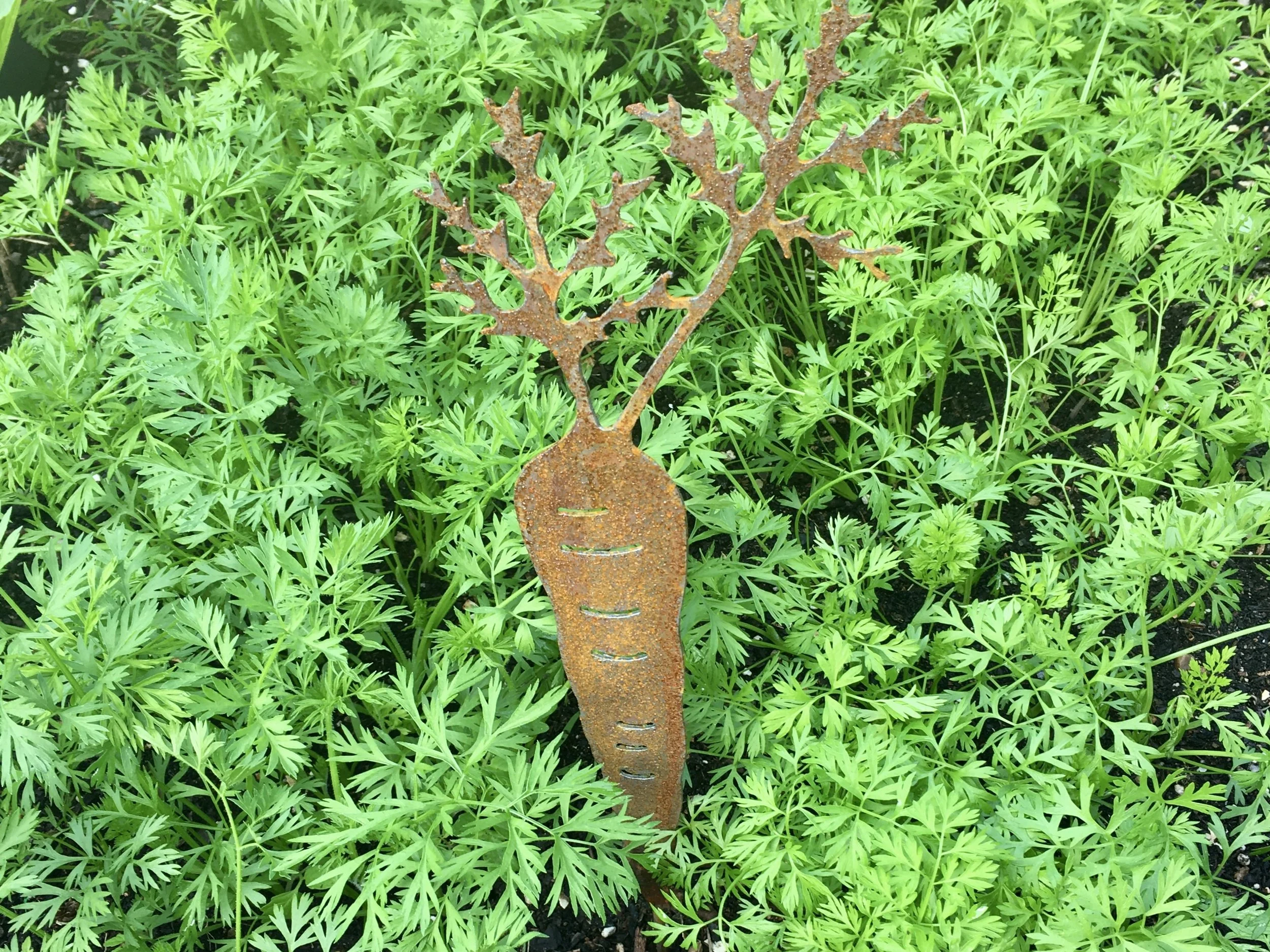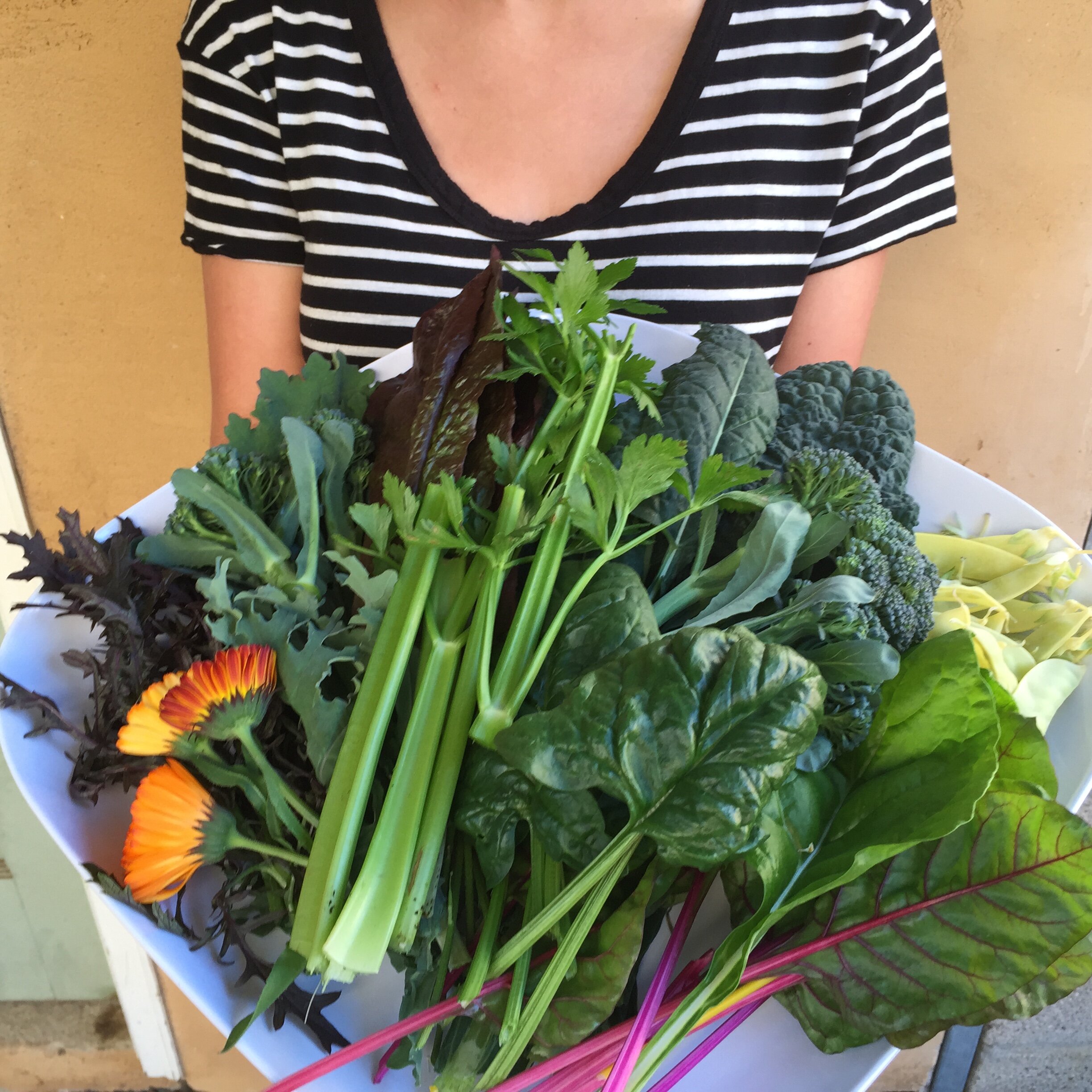Boycotting Big Carrot
A sign promoting a carrot boycott hangs at the entrance to Charlie Bosma’s small ranch in the Cuyama Valley. (Luis Sinco / Los Angeles Times)
The following content is from Los Angeles Times | Essential California
Boycotting Big Carrot
If you buy carrots from a supermarket, there’s a good chance you’re bringing home veggies grown by Grimmway Farms or Bolthouse Farms.
The two companies are the world’s biggest carrot growers, and cultivate crops in the Cuyama Valley, located roughly between Bakersfield and Santa Barbara.
And they use a lot of water to do that, pumping more than 28,000 acre-feet of water in 2022, according to Times reporter Ian James. That was “about 65% of all measured pumping reported to the local groundwater agency” last year, he wrote, or “nearly three times the annual water use of the city of Santa Barbara.”
The valley’s groundwater basin is one of 21 in California deemed “critically overdrafted.”
“As the valley’s only water source shrinks, a bitter legal battle over water rights has arisen between carrot growers and the community,” Ian reported this week. “Residents are fighting back with a campaign urging everyone to stop buying carrots.”
Carrots are grown in the Cuyama Valley, where residents have banded together in a boycott targeting large growers over water concerns. (Luis Sinco / Los Angeles Times)
The boycott targets a variety of carrot forms found in supermarkets, such as baby carrots, carrot chips and carrot juice. It’s rooted in a 2021 lawsuit, in which the two big growers joined other entities to sue valley property owners over how much water each was allowed to pump. That left family-run farms, ranches and other properties with hefty with legal bills, Ian reported this week.
“Residents have accused the companies of going to court to try to secure as much water as possible, while forcing painful cuts on smaller farms,” he wrote. That didn’t sit well with residents.
“Our blood, sweat and tears are in this land,” farmer Chris Wegis told Ian. “And for someone to come in and try to rob us of our livelihood and take it from us, for their own profit, it’s unrighteous. I mean, it’s just criminal.”
Residents launched a petition and began the boycott effort in July. Across the valley, roadside signs urge passersby to “STAND WITH CUYAMA AGAINST CORPORATE GREED.”
“The only way to get their attention is through boycotting their products so that they realize the pain that they’re causing,” Charlie Bosma, a local resident and boycott organizer, told Ian. He was among the residents now facing steep legal bills from the lawsuit.
Both corporate farms later dropped out of the lawsuit and said they have committed to reducing their water use as part of the valley’s groundwater management plan.
“Our relationships with the residents of Cuyama are more important and valuable to us than this court case,” Grimmway Farms stated in an email to The Times.
In a statement, Bolthouse Farms said its withdrawal from the lawsuit was “driven by our commitment to sustainability.”
But for valley residents, that came too little, too late. The boycott continues and residents hope support for it will grow.
As Ian explained, the feud playing out in the Cuyama Valley is not unique in California.
“Landowners have filed suit in four other similar cases, including in Ventura County and Ridgecrest, seeking court adjudications to determine how much groundwater they should be able to pump,” he noted.
You can explore Ian’s reporting to learn about the boycott and hear more from Cuyama Valley residents.
Think about growing your own carrots if you live in USDA 9 or 10.






